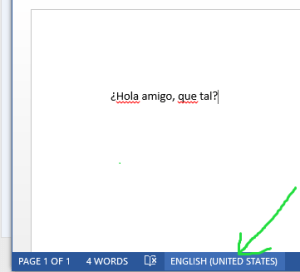Description: Learn Spanish, French, German, Portuguese, Italian, and English. Totally fun. Totally free.
PC Magazine Editors’ Choice for Language Learning: “Among iPhone apps for learning or practicing a language, you can’t beat Duolingo.”
“Far and away the best free language-learning app.” —The Wall Street Journal
“We’ve also tried a few other methods such as book learning and Rosetta Stone, both of which bombed. That’s why I jumped at the chance to try Duolingo. And believe me, it’s addictive.” —FluentIn3Months.com
With Duolingo, you learn a language completely free, without ads or hidden charges. You have fun while you learn, leveling up and competing with friends. You have the opportunity to translate real-world texts in the language you are learning, and in doing so, help us translate the Web into other languages.
 Description:
Description: AccelaStudy is the award-winning language education software for iPhone, iPod touch, and iPad that helps you understand and pronounce words in the shortest possible time. Learn new Spanish words quickly, easily, and permanently with AccelaStudy.
Join over 6,000,000 people worldwide who have used AccelaStudy to master a language. Perfect for students, travelers, executives, and anyone who wants to quickly increase their fluency.
• PRONOUNCE each word perfectly after listening to NATIVE SPEAKER audio for all words.
• Fully functional version of AccelaStudy with a useful subset of its 2,400 professional translations
• The vocabulary includes commonly used Spanish VERBS
• SPACED REPETITION feature helps you quickly memorize new words
• Automatic STATISTICS help you track your learning progress
• Searchable DICTIONARY of all vocabulary
• Flashcards
• Multiple Choice Quiz
• Audio Quiz
• Completely HANDS-FREE mode allows you to study vocabulary while driving or jogging
• All text and audio content is contained within the application. No Internet connection is required.
Description: Start reading, speaking & learning Spanish today with MindSnacks! Our language apps feature 9 addictive games that build essential vocabulary & conversation skills. Perfect for students or travelers of any age who want to learn Spanish.
This app will teach you the language skills you need (and without subjecting you to boring flashcards). Soon you’ll be able to get directions, order food, meet new friends, shop, relax — and more!
“This app is not just your average, run-of-the-mill crash course… It includes complex exercises, challenges, and lessons that make the learning process fun and effective.” – App Safari
“MindSnacks’ games deliver ‘bite-sized’ learning experiences that use social elements and game mechanics to engage users.” – TechCrunch
* FEATURES *
— Nine unique mini-games
— 1000+ words and phrases to master
— Native speaker audio clips and hand-illustrated image library
— 50 Spanish lessons designed by Ivy League instructors (Upgrade required for full access)
— Personalized learning algorithms to maximize memorization, retention & contextual usage
— Enhanced review mode lets you focus on current or mastered lessons
— Additional quests & challenges to keep you motivated
Description: Start to improve your Spanish today with this easy to use application. Learn with this app daily to
improve your Spanish vocabulary (verbs, nouns, adjectives, adverbs).
* Spanish word with English translation
* Example sentence showing the usage of the new word
* The data gets updated daily
Description: Translate words and phrases between more than 60 languages using Google Translate for iOS. For most languages, you can speak your phrases and hear the corresponding translations.
With Google Translate you can:
• Translate text between 64 languages
• Translate by speaking the text instead of typing it (17 languages)
• Listen to your translations spoken aloud (24 languages)
• Display translations in full screen mode to make it easier for others nearby to read
• Star your favorite translations for quick access even when you’re offline
• Access your translation history even when you’re offline
• Spell out the translation of non-Latin script languages (e.g. Chinese, Japanese, etc..) in Latin characters to read it phonetically (e.g. Pinyin, Romaji)

































